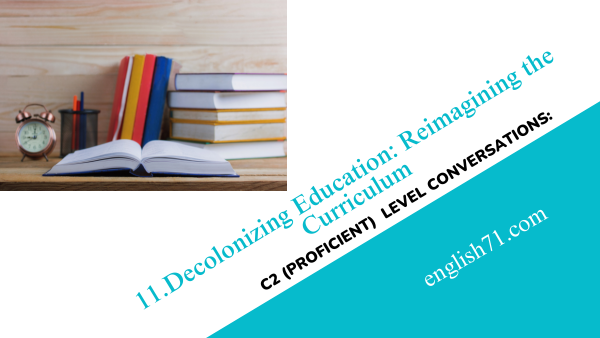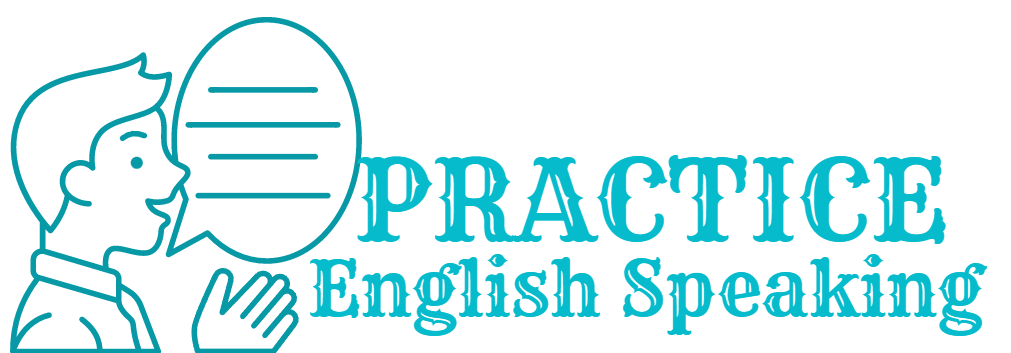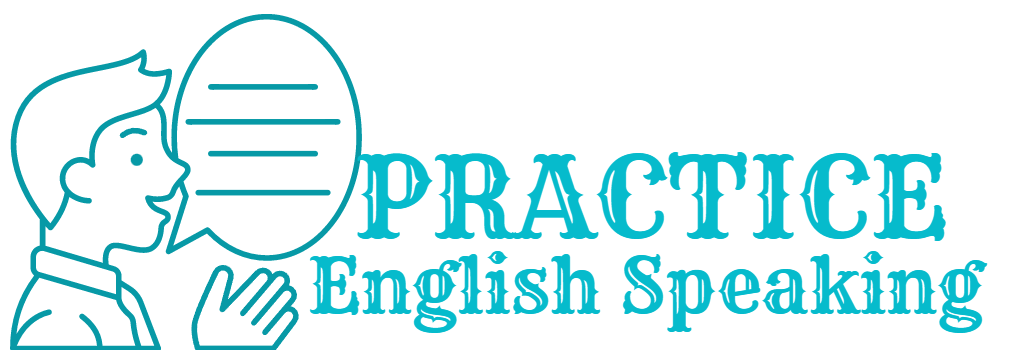C2 (Proficient) level Conversations: (11) Decolonizing Education: Reimagining the Curriculum

Alice: Mark, have you ever thought about the concept of decolonizing education?
Mark: Absolutely, Alice. It’s a critical discourse that challenges the Eurocentric perspectives dominating our educational systems.
Alice: Right. Decolonizing education involves rethinking the curriculum to include diverse perspectives and histories often marginalized or omitted.
Mark: Exactly. It’s about recognizing and addressing the historical injustices, biases, and power imbalances inherent in traditional educational structures.
Alice: I couldn’t agree more. By diversifying the curriculum, we can provide a more inclusive and equitable learning environment for all students.
Mark: Absolutely. It’s not just about adding tokenistic diversity but fundamentally reshaping the way we teach and learn to foster critical thinking and empower students to challenge dominant narratives.
Alice: Precisely. It’s about empowering students to question, reflect, and engage critically with knowledge production, rather than passively consuming information.
Mark: And it’s not just limited to content but also extends to pedagogical approaches, assessment methods, and institutional practices.
Alice: Absolutely. Decolonizing education requires a systemic shift that acknowledges the interconnectedness of knowledge, power, and culture.
Mark: Indeed. It’s about creating spaces where diverse voices are valued, where students can see themselves reflected in the curriculum, and where they’re equipped with the tools to navigate an increasingly complex and interconnected world.
Alice: Couldn’t have said it better myself, Mark. Decolonizing education is not just a theoretical concept; it’s a crucial step towards creating a more just and equitable society.
Mark: Absolutely, Alice. It’s a journey that requires ongoing commitment, reflection, and action from all stakeholders involved in the educational process.



Summary:
In their conversation, Alice and Mark delve into the concept of decolonizing education. They emphasize the need to challenge Eurocentric perspectives dominating educational systems by diversifying the curriculum to include marginalized perspectives and histories. Their discussion highlights the importance of reshaping teaching and learning methods to foster critical thinking and empower students to question dominant narratives. They stress that decolonizing education is not just about content but also involves systemic shifts in pedagogical approaches and institutional practices to create more inclusive and equitable learning environments. Overall, their conversation underscores the significance of decolonizing education as a crucial step towards building a more just and equitable society.

